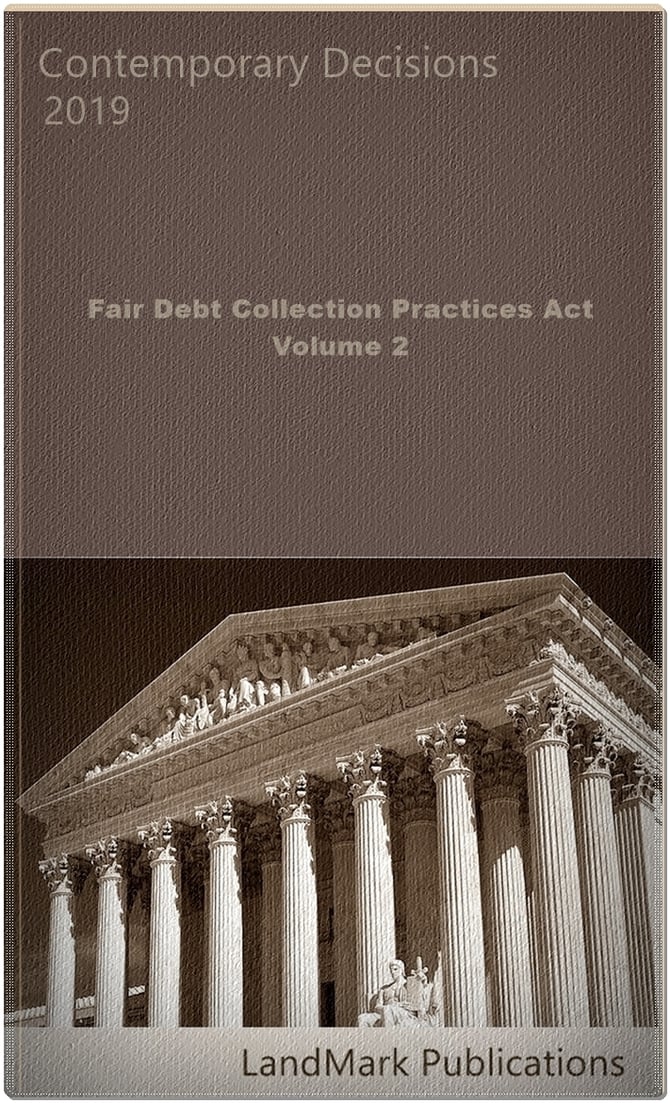
Fair Debt Collection Practices Act 2019, Volume 2
Purchasers have access to all three of the following file formats:
pdf
epub
mobi
The Fair Debt Collection Practices broadly prohibits the use of any "false, deceptive, or misleading representation or means in connection with the collection of any debt." 15 U.S.C. § 1692e. Along with this general prohibition, the statute lists specific examples of prohibited conduct. See id.; see also Nielsen v. Dickerson, 307 F.3d 623, 634 (7th Cir. 2002) (describing this list as "nonexclusive"). The following examples are relevant here: "[t]he false representation of ... the character, amount, or legal status of any debt"; "[t]he threat to take any action that cannot legally be taken or that is not intended to be taken"; and "[t]he use of any false representation or deceptive means to collect or attempt to collect any debt ...." 15 U.S.C. § 1692e(2)(A), (5), (10).
Even if a statement in a dunning letter is "false in some technical sense," it does not violate § 1692e unless it would confuse or mislead an unsophisticated consumer. See Wahl v. Midland Credit Mgmt., Inc., 556 F.3d 643, 645-46 (7th Cir. 2009); Turner v. J.V.D.B. & Assocs., Inc., 330 F.3d 991, 995 (7th Cir. 2003). "The unsophisticated consumer is 'uninformed, naive, [and] trusting,' but possesses 'rudimentary knowledge about the financial world, is wise enough to read collection notices with added care, possesses "reasonable intelligence," and is capable of making basic logical deductions and inferences.'" Williams v. OSI Educ. Servs., Inc., 505 F.3d 675, 678 (7th Cir. 2007) (alteration in original) (quoting Pettit v. Retrieval Masters Creditor Bureau, Inc., 211 F.3d 1057, 1060 (7th Cir. 2000)). An unsophisticated consumer "may tend to read collection letters literally, [but] he does not interpret them in a bizarre or idiosyncratic fashion." Pettit, 211 F.3d at 1060. That is, "[t]he 'unsophisticated consumer' isn't a dimwit." Wahl, 556 F.3d at 645.
Moreover, "[a] statement cannot mislead unless it is material." Hahn v. Triumph P'hips, LLC, 557 F.3d 755, 758 (7th Cir. 2009). After all, "[t]he purpose of the Fair Debt Collection Practices Act is to protect consumers, and they don't need protection against false statements that are immaterial in the sense that they would not influence a consumer's decision." Muha v. Encore Receivable Mgmt., Inc., 558 F.3d 623, 628 (7th Cir. 2009). In this context, a statement is material if it would "influence a consumer's decision ... to pay a debt in response to a dunning letter." Id.
Boucher v. Finance System of Green Bay, Inc., 880 F. 3d 362 (7th Cir. 2018)

